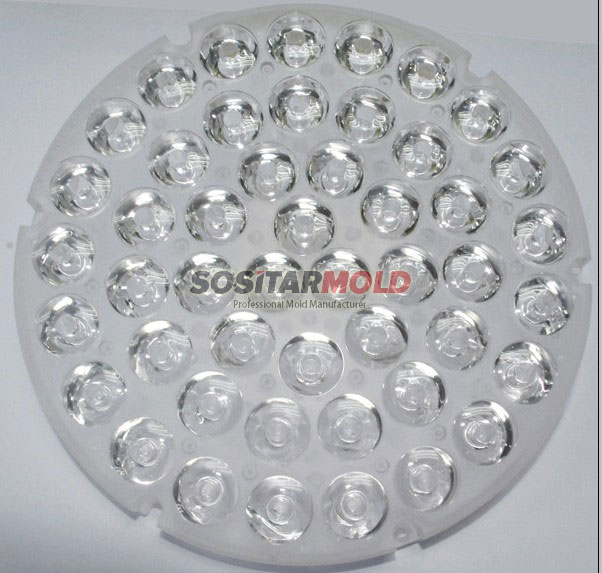PMMA, i.e. polymethyl methacrylate, also known as acrylic or organic glass, is a transparent thermoplastic with a relative density of 1.19, which is higher than that of water. With a high surface glossiness, the PMMA products are characterized by strength, rigidity and toughness.
The process features of PMMA: due to the high viscosity, PMMA has a poor fluidity. Therefore, a high material temperature and a high injection pressure must be applied during the injection molding process, among which the influence of injection temperature is greater than that of injection pressure. However, the increase of injection pressure helps improve product shrinkage. PMMA enjoys a wide range of injection temperature – melting pressure is 160℃, but the decomposition temperature is as high as 270℃ – so, material temperature is allowed to be adjusted within a wide range for better manufacturability. As a result, the improvement of viscosity can be carried out from the perspective of injection temperature. PMMA features a poor impact resistance and abrasion resistance, easily scratched and broken, so mold temperature should be raised to improve the condensation process, and thus overcome these defects.
The injection molding performance: PMMA is an amorphous polymer which does not possess a clear melting point. Usually, it becomes soft when heated to 160℃ and starts to flow at around 180℃, while the decomposition temperature is 270℃. With a wide range of adjustable injection temperature (usually between 180 to 240℃), the material absorbs moisture slightly. Therefore, it needs to be dried under 100℃ conditions for 2 – 3h before production starts. Shrinkage rate is 5‰, with an overflow limit value of 0.05mm.
